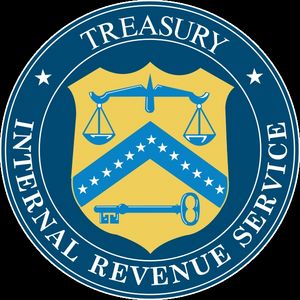When you have foreign source income and/or assets there are a number of reporting requirements that you are obligated make to the IRS. Many taxpayers are either are not aware of these requirements or inadvertently rely on others for information that may turn out to be incorrect. If you live outside the US, you may believe that you are exempt from various income and/or reporting requirements. And of course, there is always the belief to that if you disclosure more than you run additional risks for investigation. There a number of disclosures areas that you should be aware of when filing your tax returns if you have foreign source income and/or assets. The following are the more common mistakes and oversights that taxpayers miss on their tax filings.
 Form Number 926 “Return by a U.S. Transferor of Property to a Foreign Corporation”
Form Number 926 “Return by a U.S. Transferor of Property to a Foreign Corporation”
In general, this tax form is required to be filed when during the tax year, a US person makes a certain amount of transfers of tangible or intangible property to a foreign corporation. A US person can be any citizen, domestic corporation, domestic partnership, domestic LLC and/or domestic estate or trust. The reason for this disclosure return is that certain transfers of tangible and intangible property maybe a considered a taxable event and thus subject to some kind of taxation.
If the form of the transfer is cash, the taxpayer must file this form, if immediately after the transfer the US person owns directly or indirectly at least 10% of the total voting power of the foreign corporation or the amounts of transfers by the US person to the foreign corporation during a twelve month period exceeds $100,000.
For example, taxpayer A is an individual, who transfers $200,000 in the form of cash, from the US to Costa Rica to purchase a piece of real estate that is held in a foreign corporation. After the purchase of the real estate via a stock transfer, the taxpayer owns 100% of the foreign corporation. The taxpayer must file this disclosure return with their income tax return.
Another example, the taxpayer is a domestic corporation who transfers $95,000 to a Costa Rican corporation and immediately afterwards is an 8% shareholder of the foreign corporation. The taxpayer is not required to file form 926.
The penalty for not filing the form if willful is limited to $100,000 per year.
Form 5471 “Information Return Of US Persons With Respect To Certain Foreign Corporation” and Form 8865 “Return Of US Persons With Respect To Certain Foreign Partnerships”
These two tax disclosure forms attempt to capture various activities of either a foreign corporation or a foreign partnership. The activities include the income and expenses of each, transfers of property, gains and losses, and passive income, such as interest, dividends and distributions. They also may capture balance sheet items such as cash, receivables, property and loans.
The form is generally required by those US persons who act in the capacity of an officer, director, shareholder and/or partner. If the US person is a shareholder or partner, then the filing requirements depends on the nature of their holdings and the percentage of stock voting rights, capital, and ownership.
partner. If the US person is a shareholder or partner, then the filing requirements depends on the nature of their holdings and the percentage of stock voting rights, capital, and ownership.
It is also important to understand that the form will disclose certain information about other shareholders and partners, including their status within the foreign entity (i.e. director, officer or owner), the percentage of ownership or voting rights and their tax identification numbers. The form maybe filed on behalf of a group of US persons depending on certain facts and circumstances.
It equally important to make sure that if you have fellow shareholders, partners, directors and/or officers, that the information on these forms is accurate and consistent with your own reporting or theirs. This is because if you are not the one filing the return, but it has been filed on your behalf by another, that you are bound by the disclosures contained and are subject to any resulting penalties.
The failures to file these returns are $10,000 and up to $50,000 if the IRS has contacted you and you have failed to respond within 90 days. For willful conduct and/or intentional disregard to file, there can be criminal penalties assessed of higher fines and significant prison time.
Form 8938 “Statement of Specified Foreign Financial Assets”
The filing of this form started in 2011 under the Foreign Account Tax Compliance Act and is designed to capture a taxpayer’s detailed foreign asset holdings if they exceed a certain threshold amount. Starting in 2012, all US persons, including domestic corporations, domestic partnerships and LLC’s, trusts and estates that have foreign assets valued at more than $50,000 at the end of the year or $75,000 at anytime during the year are required to file this informational return. Individual reporting started in the year 2011, and are required if you had foreign assets valued at more than $50,000 at the end of the year of $75,000 at anytime during the year. This amount is double if you are married. If you reside outside the United States, the thresholds for reporting are foreign assets of more than $200,000 at the end of the year or $300,000 at anytime during the year. This amount is also double if you are married.
The failure to file this information can be up to $50,000 in penalties. If you file information on your foreign holdings on other forms, such as those listed above, you may not have to file this form.
Form TD F 90.22-1
This information is filed separately (i.e. not directly with your income tax return) and is due on June 30th of each year. This form is required if you directly or indirectly control foreign bank accounts that have or had balances of more than $10,000 in the year. Control can be generally defined as if you had more than a 50% interest or voting control in a foreign entity that owns the foreign bank account.
You may also be required to the file this form if you had signatory authority over the account even if you did not control it. For example, if you are a employee or consultant and work for a foreign company in Costa Rica and you are a signer on the bank account that your employer has, if the bank account had at anytime during the year a balance of $10,000 or more, you are required to file the tax form. If you are an employer, take note, as the non-owner employees who have these kinds of powers, are required to report who the owner of the account is.
The penalties for not filing this report can be severe. For willful non-compliance the fine can be 50% of the account balance per year, with no limit. If there is no underreporting of income connected to the account, then the IRS may not impose any penalty.
What to do if you are in non-compliance
If these forms and filing requirements seem strange to you or if you have never heard of any of these disclosure returns, then you with your tax professional should review your tax returns and think about if any of these above situations apply. If you have not complied with the above and you should have, then by law you are required to file these informational returns. The IRS can take the position that since your tax return was not filed completely, the statute of limitation of generally three years has not started. Remember, many of these returns are informational only, and does not necessarily mean that you will have a additional tax liability on income.
The important part of determining and assessing the risk to your non-compliance is the size and nature of the non-compliance, the time frame of the non-compliance and if there is also significant under-reporting of taxable income. The other important item to consider is the how you are treating your finances. Are you planning to or have already repatriated funds back to the United States? Are you just accumulating assets or actively transferring cash to other foreign jurisdictions? Are you living off of the income of these assets? These factors will affect your decision to take action or not. If you decide to comply, then in general you will need to amend your tax returns for the periods that are still open. If your exposure is significant, then you may want to consider participating in the Offshore Disclosure Voluntary Program (“ODVP”) that the IRS is currently offering.
If your intent is to evade paying or reporting your foreign source income and assets, then it should be known that the US government is becoming more aggressive at finding and prosecuting those who have flagrantly not filed. They are devoting more financial and human resources to this area. The implementation of the FATCA is designed to capture information held at foreign financial institutions on US account holders. The US government has also recently signed information sharing agreements with the governments of Great Britain, France, Italy and Japan. They are also using other investigative techniques to find those who are flagrantly in non-compliance. Be careful whom you discuss your finances with – they may just be an undercover agent or informant!
The best way to deal with these issues is to voluntarily report and disclose – this generally will prevent the US government from filing criminal actions against you. If you do voluntarily disclose and have a large tax liability, there are options to either enter into a payment plan or if the amount is just impossible to pay, enter into an offer in compromise agreement.
Your tax professional should be consulted on these matters and they can assist you in determining the best way to handle your situation.
Robert L. Pioso, CPA, with 20 years of experience as a CPA, CFO and owner of a Costa Rican business can help you navigate through the complexities of US taxation for US expats and those who own investments and assets in Costa Rica. You can contact him for a free consultation – CR 6050-3831 or US 312-235-2301 or visit him at www.richcoastaccounting.com or email at robert@richcoastaccounting.com. Rich Coast Accounting and Financial Services are focused at providing positive and tangible results that will bring real value to you or your business and offers a unique guaranty “You pay only for the value of the services received or the invoice, whichever is less.”

